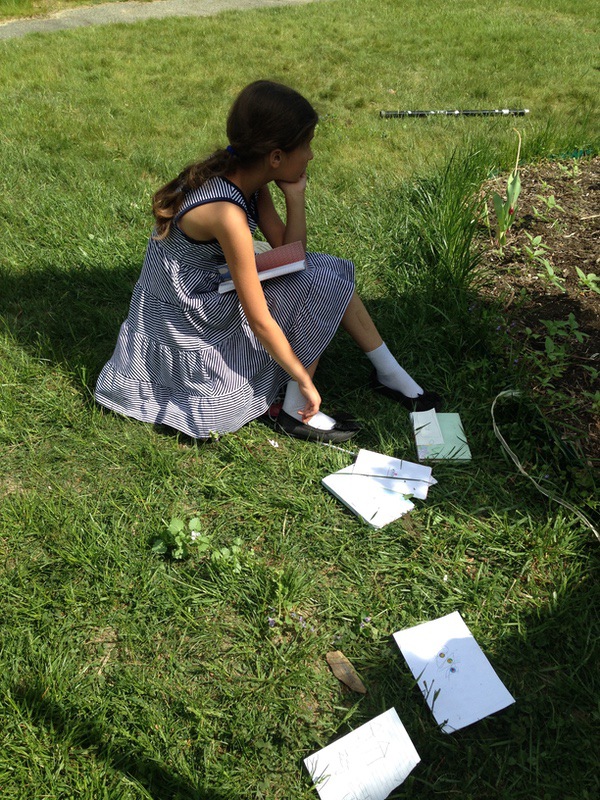I love this video because it makes me look like the best homeschooling mom ever. Of course, we paint at most perhaps once a month. And I claim no credit for Bella’s feat of memorization. I suppose this is unschooling at its best.
This morning the girls asked if they could paint. I opted for watercolors, because my tolerance for mess was at a low point today. While the girls were watercoloring, Isabella surprised my by beginning to recite some poems. We’ve been reading John Updike’s A Child’s Calendar quite a bit in the last week and it seems she’s memorized almost all of the book. (I should clarify that we’ve owned this book for years and this is just the latest stint of reading it over and over again. So it’s not like this was her first exposure to these poems.)
After she and I both got stuck, she ran and got the book and then she went through the whole thing month by month while I prompted her when she hesitated.
Of course, the camera didn’t turn on for some of the choicest parts, but I pieced together a few clips of the best of what I was able to capture. (While being interrupted by screaming, teething toddlers.)
p>







Since every grace, blessing, strength, virtue, etc. was not theirs but rather God’s, I think it comes down more to who accepts His offer of grace and really applies themselves to surrendering to His will and those who don’t. Yes, he asks some to take on bigger tasks than others, but maybe that has more to do with our capability or choice to receive his graces and His knowledge to that regard?
And while I realize St. Therese would not consider herself a “rose” or a “lilly” I’m not so sure many people would agree. She saw her life as a “violet” or a “daisy” but personally I think she was much more than that though in a very different way than a St. Paul or St. Augustine.
I tend to agree with Katherine’s theory of capability and choice…it seems to me that the more I learn about the Catholic faith, the more I find is required of me. There have been times when I wish that I hadn’t learned things so that I could have pleaded ignorance, but having learned them I know I must comply. Certainly my understanding now far exceeds my understanding ten years ago, and what I am culpable for has increased in direct proportion. But my capability for knowledge is much less than, say, my husband’s, who has a serious philosophical bent. He understands even more than I do, and thus more is required of him.
I tend to think that God portions out understanding and trial to those souls who He made capable of handling it. And we all get what we can handle. But then, reading back through this, I’m a little uncomfortable at the Calvinistic predestination-ey tone behind this, so maybe I’m wrong. I guess there’s no easy answer here? Or maybe St. Therese’s answer is the best one and we should leave it at that.
Well, of course St Paul and St Augustine had to be open to accepting the graces God sent them. But I think St Therese’s point is that not every soul who has gone astray gets a Damascus moment. Not all of us are called back to the faith in such a dramatic way. I think she’s trying to answer the question why do some get visions and hear voices while others don’t. I don’t think it’s only a matter of some people being more open to grace than others. I think she’s saying some people really are given greater gifts and perhaps even that some people are born with a greater capacity for holiness.
Of course, I’d agree that St Therese perhaps underestimates her own greatness. But her flower metaphor is still helpful. In general on my good days I aspire to be a dandelion.